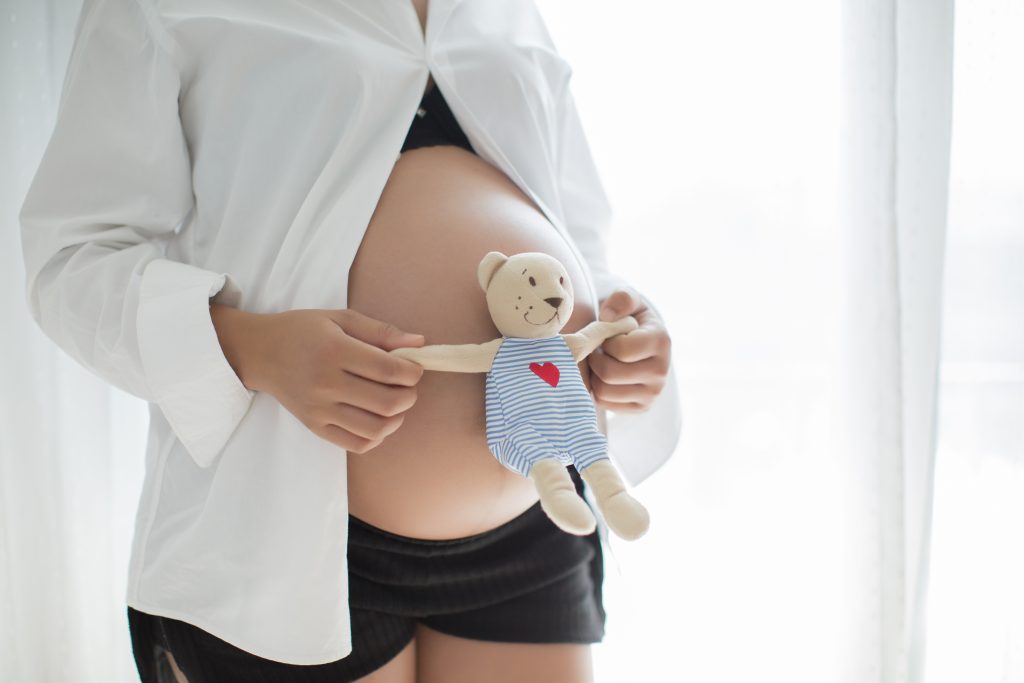Pregnancy can be one of the most magical times, but also one of the most challenging. Hormones, physical changes, worries about birth, and the overwhelming sense of responsibility can all combine to create anxiety, fear, or emotional strain. In this blog, we look at how hypnotherapy can help women navigate pregnancy, childbirth, and early parenthood with greater calm, confidence, and a stronger sense of control.
Common Mental Health & Wellbeing Challenges in the Perinatal Period
The journey of pregnancy and childbirth often brings up a range of emotional and psychological issues. These might include:
- Anxiety – pre-existing anxiety but also worries about health, childbirth, and parenting.
- Depression – persistent sadness, emptiness or feeling flat or disconnected.
- Perinatal OCD – intrusive thoughts or repetitive behaviours focused on baby’s wellbeing.
- Stress – feeling overwhelmed by life changes and other responsibilities.
- Fear of childbirth & Perinatal PTSD – especially after traumatic birth experiences.
These don’t have to be an inevitable part of pregnancy and early parenting and you don’t have to “just put up with it”. Early recognition is important so that you can reach out for help and support.
How Does Fear and Anxiety Impact Childbirth?
Prioritising your mental wellbeing during pregnancy has been shown to have a positive impact on your childbirth and early parenting experience.
We know that feelings of anxiety can set off our Fear – Tension – Pain cycle. When we feel fear, we tense up our muscles, this tension makes contractions harder and more painful, which in turn leads to increasingly more fear before each contraction.
High levels of our stress hormones (adrenaline and cortisol) can reduce our beneficial happy hormones, such as oxytocin, which is important for contractions, and endorphins, our brain’s natural pain relief. This can have a negative impact on the progression of labour, slowing things down and increasing pain perception.
The good news is, that by intentionally minimising our stress hormones and boosting our happy hormones we can positively impact the childbirth experience. Using relaxation tools and techniques helps to create a better flow of our happy hormones, leading to less perceived pain and a smoother labour. A calmer mother also means less stress exposure for the baby, which can help with early regulation of baby’s emotions.
Taking Care of Yourself During Pregnancy
Here at Inspired To Change, we regularly talk to our clients about the importance of the Three Principles of Positivity (3Ps) in looking after our wellbeing. These 3Ps are:
Positive Actions – taking any action (often small and simple things) that will lead to a positive outcome.
Positive Interactions – creating connection with others that feels good, and helps us to feel safe, valued, and understood.
Positive Thoughts – fostering an optimistic mindset that focuses on the good, expects positive outcomes, without denying reality or ignoring difficulties.
Here are some examples of 3Ps that help to improve your overall pregnancy and childbirth experience include:
- Attending regular antenatal appointments – this helps to reduce uncertainty, gain knowledge and understanding of what to expect.
- Creating a healthy lifestyle – this includes good nutrition, movement (as advised by midwife/GP) and prioritising rest and sleep.
- Emotional & social support – this might be with family, friends and pregnancy classes or groups.
- Asking for help – talk to your midwife and GP with any concerns you might have regarding your physical or mental wellbeing so that you can receive help and support as early as possible.
Each of the above offers a combination of the 3Ps – positive actions, interactions and thoughts – which are important for creating a healthy flow of those important happy hormones during pregnancy.
How Does Hypnotherapy Help During Pregnancy and Childbirth?
Hypnotherapy sessions help expectant parents to feel calm, confident, relaxed and in control. These are not just “nice to have”, they form the foundations for creating a more positive childbirth and early parenting experience.
At Inspired to Change we specifically practice the solution focused model – this means that the emphasis is on finding strategies and empowering clients to achieve positive outcomes, without the need to dwell on problems or revisit the past. As a result, sessions offer a refreshing and positive experience for expectant parents.
What to expect from pregnancy and childbirth hypnotherapy sessions:
- Brain Education – learning how stress and anxiety are created, the impact they have on our wellbeing and how to take control, build resilience and boost happy hormones during pregnancy.
- Hypnobirthing – teaching self-hypnosis techniques that can be used during childbirth to cope with pain and anxiety, enabling deep relaxation and focus.
- Birth Partner Inclusion – partners can learn how to confidently support the mother to stay calm and relaxed during childbirth (whilst using the tools to remain calm and in control themselves!)
- Benefits for Baby – reducing exposure to excessive stress hormones in utero, better oxygenation and potentially smoother transition into life in the wider world.
What Next?
If you, or someone you know, is expecting and would like to find out more about how hypnotherapy can help to reduce stress and anxiety, boost resilience and create a calm, positive birth experience, get in touch to book your free initial consultation today.
About the Author: Kerry Seymour is based in Weston-super-Mare and works with clients both in-person and online. After experiencing postnatal depression following the birth of both of her children, Kerry is particularly interested in supporting new and expectant parents experiencing perinatal mental health conditions such as stress, anxiety, trauma and OCD. She is passionate about helping her clients to boost their resilience and confidence and create positive change, both for themselves and their family.




